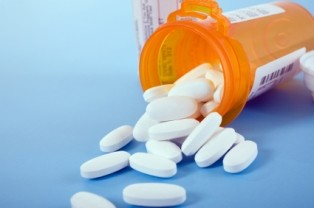A different approach to Trump’s war on drugs
By: Maria McFarland Sánchez-Moreno, Drug Policy Alliance

My Fellow Americans,
Families, communities, and citizens across our country are in crisis due to the dramatic escalation in opioid overdoses. While some other countries are struggling with increased overdose rates, the problem is far worse here. And it’s time that we ask ourselves why: Why is it that after billions of dollars spent on trying to stop illegal drugs from coming into the US, today opioids are as plentiful as ever? Why is it that decades since Nancy Reagan urged American kids to “just say no,” demand is as high as ever? And why are so many people dying?
A big part of the answer is that the war on drugs has failed to deliver on its promises.
Arresting and locking up people who use drugs has only driven them underground, making it less likely they’ll seek help when they need it. The lack of meaningful public education about drugs, their real effects, and the concrete risks around them — for example, that the risk of death goes up when opioids are mixed with alcohol — means that those who try drugs are likely to do so in riskier ways. The criminalization of drugs means it’s impossible for people who use drugs to get their supply tested, and to find out whether it’s adulterated with unwanted substances like fentanyl.
The billions of dollars we have poured into going after the drug trade, both abroad and at home, have only enhanced the profitability of the drug market for organized crime. As a result, criminal groups have near-limitless financial resources to develop ever more inventive methods to keep the supply going, to corrupt authorities, and to ruthlessly protect their share of the market.
The “collateral damage” of this unwinnable war? Devastated families across the US. Not just the families of the 64,000 people who died of an overdose in 2016, but the countless others, particularly in communities of color that have been aggressively targeted by police, whose loved ones have been locked up or deported for low-level drug offenses. Abroad, the cost has included hundreds of thousands of people killed in countries from Mexico to the Philippines.
Rather than solving problematic drug use, the war on drugs has metastasized into a decades-long national and global disaster. It has criminalized a public health issue and inflicted death, incarceration, and untold billions in wasted US tax dollars on multiple generations of Americans. Enough is enough.
I’m here to propose a different approach.
Today, I am officially declaring the opioid crisis a national public health emergency under federal law.
We will never be able to stop all people from using drugs, and we shouldn’t try. Our goal should be to minimize the harms — like overdose — that can flow from drug misuse, while avoiding causing greater harms in the process.
We will take immediate action to prevent overdose by funding community-based programs to provide the life-saving overdose-reversal medication naloxone, working to lower its price, and removing barriers to accessing it elsewhere. We will work with states so they improve, pass, and implement Good Samaritan laws, and stop prosecutions of people who are present at the time of an overdose. Nobody should be afraid to call 911 to save a life.
We will not coerce people into treatment through criminal justice tools or drug courts, as too often that only does further harm by landing people in prison. For those who want it, we will increase access and eliminate red tape around evidence-based treatment, including the medications methadone and buprenorphine, which have proven far more effective than other options. We will put resources into researching and evaluating new treatment and pain management modalities, including medical marijuana.
We will promote mechanisms that have proven effective to reduce the harms associated with drug misuse. That includes safe consumption facilities, where people who use drugs can consume them under the supervision of trained professionals, who can monitor them for overdose and refer them to treatment or other support as needed. We will provide free drug checking services in communities across the country, so people who use opioids can ensure they’re not adulterated in ways that increase their risk.
Rather than resort to fear-mongering, we will equip our young people with knowledge, warning them about the risks of drug misuse in a realistic and scientifically grounded way. We cannot control all their choices, but by treating them with respect and giving them sound information, we can ensure they have what they need to make good choices for themselves.
Right now, we will stop putting law enforcement resources into arresting people for drug use and possession. We must stop treating people who use drugs as criminals, and stop using the war on drugs as an excuse for persecuting Black, brown, and immigrant communities. Instead, we will invest those resources in addressing the many other needs of the communities that have been worst hit by the war on drugs — particularly among people of color.
It will take many years and even decades to undo the terrible harms wrought by the war on drugs, but we must start in earnest now.
The harm stops here.
Maria McFarland Sánchez-Moreno is the executive director of the Drug Policy Alliance.
Source: www.drugpolicy.org
Related Article:








